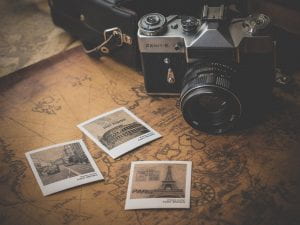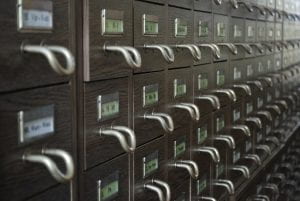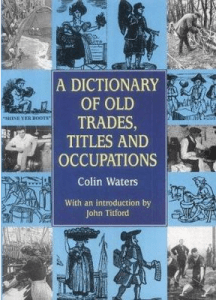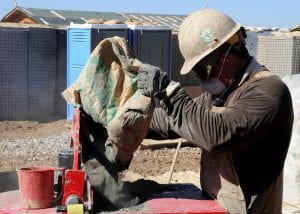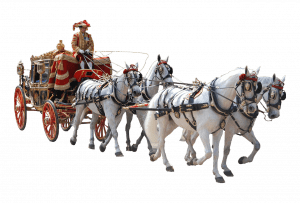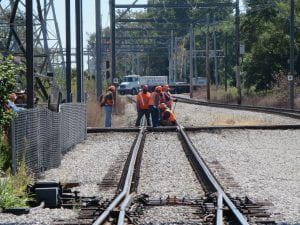A couple of years ago, I had no knowledge of how to search for London ancestors as I didn’t have any as far as I knew. But recently, with DNA assistance, I now have a few lines through dad’s finally found father.
As tonight’s #ANZAncestryTime chat was about resources for London research, I could actually mention some sources I have used.
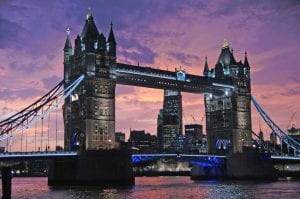
What general resources have you found the most helpful or what are your favourite resources for researching ancestors from London and its surroundings?
I’m hoping to gain some inspiration on ancestors who lived or moved through London.
Looking forward to hints about ways to find my London ancestor pre civil registration when I have no idea of location
Research sites I’ve used include Genuki, Pallots Index, Family Search, Ancestry and census info as a guide to places of birth. Booth’s poverty maps are great – if you have a specific address
I have found the London Metropolitan Archives very useful bit.ly/3w8Efns and also the London Encyclopedia which I purchased recently
I struggle with having any confidence that I have found the correct birth or marriage when there’s a city of a bazillion people
Yes, it can be difficult especially if researching a common name … So many Browns in North London
Censuses, directories and parishes records! Huguenot society for sure too but also French/international collections at @MyHeritage because a lot were French or Belgian/Dutch emigrants or refugees 🤩
Because I focus on 1800s and early 1900s I find the census and church records most useful for the basic starting point for my London ancestors. They moved to NZ and Essex so I can follow they with the census to Essex
For London #FamilyHistory there are some excellent Family History Societies who offer resources, talks and publications! There is an excellent guide by @LWMFHS lwmfhs.org.uk/area-covered
LMA have a great website with many rabbit holes to disappear down. I could easily spend hours there
Westminster Archives would be another great place to research in person and the Society of Genealogists. And London Lives londonlives.org
Re London parish registers and the LMA search.lma.gov.uk/scripts/mwimai…
I don’t have any ancestors anywhere near London, and looking at my DNA matches tree, the location is mentioned only 17 times.
the @LdnMetArchives has a number of useful guides to its resources although record sets like Land Tax Returns which I find useful for 1770-1830 are often held in Borough Libraries. So much of the LMA data is now online which is really helpful.
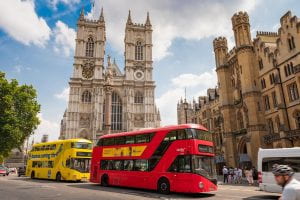
Do you use London specific resources? Are these available online? Is it a good place to visit for research?
Yes – mostly. I find maps very useful too and books e.g. A guide to London’s churches by Mervyn Blatch and Tracing Your London Ancestors by Jonathan Oates
Spent a few days at LMA when I was in London many years ago. So much to look at.
Can you tell us a bit about the London Encyclopaedia?
It’s one of those wonderful books that you can dip in and out of. The best kind of reference book. It’s a massive volume – 1116pages and covers anything and everything – buildings, people, organizations, streets, embankments, turnpikes etc etc
I have found it enormously helpful when tackling #52ancestorsin52weeks on my blog this year. I have a few families who originated from London.
LMA cityoflondon.gov.uk/things-to-do/h…
Yes it was great when my cousin was in Hammersmith. Plus she was very interested so we visited national archives and LMA. Found some wonderful and totally huge maps that were impossible to look at the middle sections without both of us rolling it up together.
A blog about London history via walking tours livinglondonhistory.com
some background on 1890’s London , glad I wasn’t living there then npr.org/2015/03/12/392…
Just bought an Unlock the Past book on London and Middlesex family history resources online from Gould Genealogy by Alan Stewart
no London ancestors that I know of but looked in our catalogue, quite a few resources librarycat.org/lib/CNGHRG/sea… may or may not be useful
I found Robsons Trade Directory, as part of Ancestry’s London City Directories collection, useful in placing a bricklayer ancestor in 1819. The occupation tied in with his convict indent & newspaper notices entered by family trying to track him in NSW.
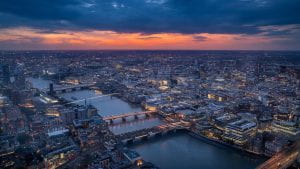
In a large city ensuring you have the right person can be hard. What suggestions or techniques do you use that can help? What about pre-census and pre-civil registration? Or dealing with people and families with common first and surnames?
I think perhaps sometimes you may never know although if they had an unusual occupation that might help. I guess I look for common names in siblings or common churches for baptisms. But sometimes it’s just like looking for the proverbial needle…
Coming to terms with never knowing is difficult Alex. As family historians we want to know it all
We do want to follow them back but when it comes to London I throw my hands up and give up.
Just remembered when I started I had to use elimination to get down to a more manageable list before expanding out to look for other records. Found my great GM this way. This technique required sometime, logic and keeping good records.
Looking for consistencies across records e.g. other family members, occupation etc.
This is my major conundrum: how can you be sure pre-civil Reg and if they die before census? Do they move between parishes? Also married in London but lived elsewhere. Seems impossible when names are not unusual. Tips much appreciated.
Usually I look to a family’s children’s names to see if I can detect a pattern for the earlier generation eg why I’ve “decided” my William Partridge’s maternal grandfather was likely William Thompson.
I have an ancestor who was a journeyman carpenter but the marriage records labourer. All else “fits”.
clues for my Partridge family (then living in Gloucestershire): Eliza (mother) and son William both shown as born Westminster on 1851 census, daughter shown as St Pancras. My husband’s ancestors married in London, lived in Notts. she was from East Sussex
I have looked for wills and letters of administration as they will give names of people involved and addresses often.
I got a great will earlier in the year. It has a row of houses in London and my grandmother left different ones to different children. I just have to find it as I forgot to file it on my computer properly.
I think luck has a lot to do with getting the correct persons. I was lucky to have families that used unusual second names & less common maiden names reused down the generations. 3 cheers for Freeborn, Collis, Myhill, Frith, Grout, Tarbet & more.
Finding my 3x g grandfather Thomas Jones in London pre civil reg has been impossible, not knowing his location
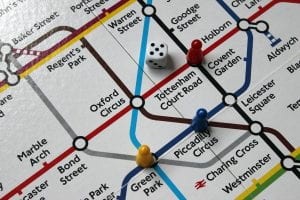
What maps and mapping sites have helped you understand London and its surrounds? Do you find ancestors relocate and return to London? Any ancestors with interesting capital-based roles? In parliament, for example?
I tend to order maps from Gould Genealogy as I find it quite difficult looking at maps online. My Dad’s old AA guide to London from the 1960s came in quite handy when I was doing research recently ! It doesn’t have just maps but also guides to churches et al.
My dad’s side of the family were mainly from London, Surrey, Kent area so comparing google maps with the poverty maps and ordnance maps from Scotland site have been great.
National Library of Scotland has some digitised London info.
I sometimes use Google maps to check out the relative proximity, and distance, between 2 places that an ancestor has lived. However, my Brown line has pretty much been in the Tottenham/Edmonton area for generations and generations
I often use street view on google. Even though it is fairly recent I find it gives a different perspective. I had a go at layering a while back and stripping back to older versions can be enlightening.
When writing up my biographies, I try to include addresses as well and hope they are in close proximity. My great grandmother suewyatt.edublogs.org/2021/12/31/flo…
Another biography showing mapping great grandfather suewyatt.edublogs.org/2021/12/11/wil…
I have a family member who was a grenadier guard. One of his duties was Gold Stick IN Waiting to the King. Gold Stick is a bodyguard
I was lucky my ancestors were coachmen and boot shop managers or similar and were easy to follow through censuses
Readers: What sources have you found useful when researching London ancestors?


